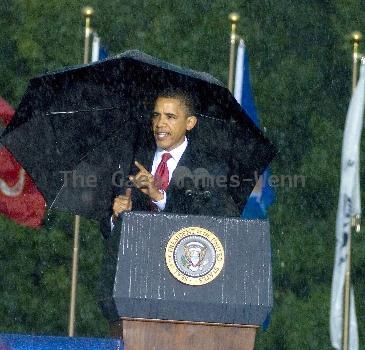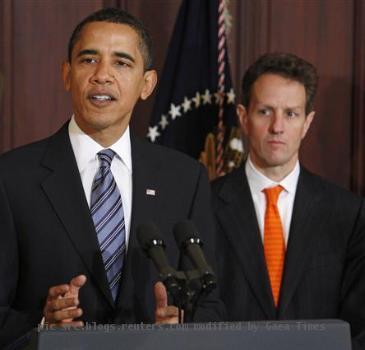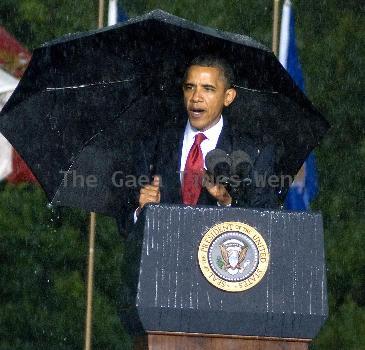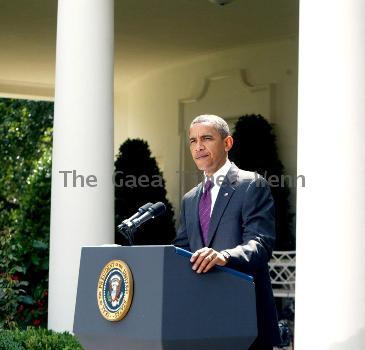APNewsBreak: 9 states, DC named ‘Race to the Top’ winners to share $3 billion for schools
By Dorie Turner, APTuesday, August 24, 2010
APNewsBreak: 10 named school grant winners
ATLANTA — Nine states and the District of Columbia will get money to reform schools in the second round of the $4.35 billion “Race to the Top” grant competition, The U.S. Education Department said Tuesday.
Florida, Georgia, Hawaii, Massachusetts, Maryland, New York, North Carolina, Ohio, Rhode Island and Washington, D.C., will receive grants, department spokesman Justin Hamilton said. The amounts for each state were expected to be announced later.
The historic program, part of President Barack Obama’s economic stimulus plan, rewards states for taking up ambitious changes to improve struggling schools, close the achievement gap and boost graduation rates.
The competition instigated a wave of reforms across the country, as states passed new teacher accountability policies and lifted caps on charter schools to boost their chances of winning.
“While this has seemed more like a marathon at times, now the real race begins,” Georgia Gov. Sonny Perdue said in a written statement. “This is truly a unique opportunity to implement a Georgia-created plan that will accelerate our work in improving student achievement.”
Georgia came in third in the first round of the competition in March, losing out to Tennessee and Delaware, which are sharing $600 million. Thirty-five states and the District of Columbia applied for the second round of the competition, and the Education Department named 19 finalists in July.
The applicants named winners Tuesday will share a remaining $3.4 billion. Another $350 million is coming in a separate competition for states creating new academic assessments.
One notable absence on the list of winners was Colorado, which passed a controversial law this year that ties teacher pay to student performance and allows the state to strip tenure from low-performing instructors.
Colorado officials were expected to comment later Tuesday.
More than a dozen states vying for the money changed laws to foster the growth of charter schools, and at least 17 reformed teacher evaluation systems to include student achievement. Dozens also adopted Common Core State Standards, the uniform math and reading benchmarks developed by the Council of Chief State School Officers and the National Governors Association.
“The change unleashed by conditioning federal funding on bold and forward-looking state education policies is indisputable,” the Democrats for Education Reform said in a statement. “Under the president’s leadership, local civil rights, child advocacy, business and education reform groups, in collaboration with those state and local teacher unions ready for change, sprung into action to achieve things that they had been waiting and wanting to do for years.”
In a speech announcing the finalists last month, Education Secretary Arne Duncan called the change a “quiet revolution.”
Between both rounds of the competition, a total of 46 states and the District of Columbia applied.
While the program has been praised for instigating swift reforms, the competition for many states was an uphill battle, with teacher unions hesitant to sign on to reforms directly tying teacher evaluations to student performance on standardized tests, and education leaders concerned winning meant giving up too much local control.
Florida was among the states that got resistance from many teachers unions in the first round of the competition but won their support after taking a more collaborative approach in round two.
“I think it shows that when the governor brought all the stakeholders together, we came up with an application that was strong and doable,” said Andy Ford, president of the Florida Education Association, the statewide teachers’ union. “The Department of Education saw the progress that we made and I just hope that collaboration and cooperation continues at the local level.”
Other states, like Indiana, dropped out of the competition because of the lack of union support for the state’s application.
A number of states that did not win the competition said they still planned to proceed with the reforms they had proposed, though they acknowledged change would take place at a slower pace without the financial boost of “Race to the Top.”
Associated Press writers Christine Armario in Miami and Michael Gormley in Albany, N.Y., contributed to this report.
Tags: Atlanta, Barack Obama, Delaware, District Of Columbia, Education Policy, Florida, Georgia, International Agreements, Labor Issues, Maryland, New York, North America, Ohio, School Competitions, Teaching, United States





